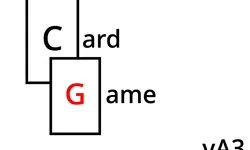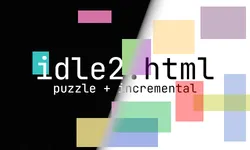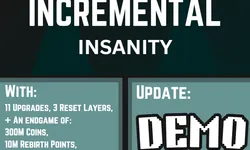Card Game Classic [ABANDONED]

Posted June 30, 2023. Updated June 30, 2023. Played 300 times for a total of 145 hours.
description
Inspired by Idle Dice 2 by luts91
Link to original project: https://scratch.mit.edu/projects/868787707/
Use passively generated Card Points to purchase Card Progression.
Card Progression can be used to draw cards that boost Card Point gain.
After completing a deck, prestige can be performed. This gives Prestige Multi which boosts Card Point gain and all Card Point Generators.
Prestige also unlocks new cards if a certain milestone has been reached.
(see milestones + card index in the original scratch project)













newest comments
i respect game developers who are new, thats why this is on scratch, i hope you get better ratings and learn to be full time one day, we are in that position together (please respond!)
developer response: i have made some (somewhat) better games since this was published, see my galaxy profile for more
i thought i was redirected to scratch (i was but like not in that way)
iT DoEs nOt WoRk
developer response: what doesnt work
@RomanQrr All of your points are valid except the one about Scratch. Scratch CAN be cool and, goshdangit, I brought proof (trust me, man, you don't wanna miss out on a second of this) :: https://www.youtube.com/watch?v=iF5RdP9B7Lg
@circle-gon did you just rate a review?
top comments
An interesting prototype that I would feel ashamed to put out into the world.
The balance is non-existent. The information clarity was found dead in its apartment. The progression is yet to be fully implemented. The game engine is Scratch.
All these flaws need to be rectified before your first outing, but here we are. That said the idea is interesting and can definitely be used for something really awesome. So here's a few pointers:
* Don't use Scratch. It's fine for prototypes, but it looks like crap and is incredibly bare bones. Trying to code in something else might be intimidating, but it will give your game less amateurish look and will allow you more tools to implement your ideas. Take a look at what other incremental developers use for their games, both in terms of coding languages and libraries, look for a few tutorials on youtube, ask for help in their Discord servers.
* What you have right now is a base mechanic - something that the player doesn't have to think about, and thus will get bored by really quickly. However, it also has foundation for strategic play: the deck. Choosing which cards to add or remove from the deck can lead to a very deep efficiency problem for players to solve, which is the core of the incremental games. I recommend reducing the initial deck down to 5 or 4 of the lowest possible cards and let the players get to deck editing fairly quickly. Don't overwhelm them with options right off the bat, give them a few easy choices of cards to add that are not too punishing if they choose wrong, them make them pay for unlocking more card options. Create other problems for them to overcome: deck size limit they need to do something to increase, different resources that only some cards produce, cards that are stuck in the deck and can't be removed.
* The game needs to communicate a huge amount of information to the player. What each card does, what does getting more copies of the same card does, what each button does, what is a button and what is just a counter? Get someone who haven't yet played the game play it while you are watching, write down their questions BUT DON'T ANSWER THEM until they decide they are done with the game. Then later find a way to answer these questions in the game and run the test again on someone fresh. You will probably run through the people who personally know very quickly, but communities exist for a reason and are fairly large pool of usually willing testers. I would also recommend getting images into the game, especially for each card.
* You need to really think of how to balance the game. Sit down and write out the progression you want the game to have. I would prefer if the progression was not entirely linear (and your concept really supports that), but simply writing out that you want the players to hit 100 total points in 1 minute, 10k points in 3 minutes, 25k points and first prestige in 10 minutes will go a long way. After you figure out these break points figure out the point gain needed for this to become reality and math out what values player needs for that to be reality. Then test it out, both yourself and with someone else without your input.
* Use scientific and/or engineering notations for values bigger than 4 digits. You could push it, but clarity of information will suffer greatly. In fact I recommend using exponents when mathing out the previous step, with the exception for the early game maybe? So instead of saying "I want players to hit 10 million in 1 hour after 2 prestiges", say "I want players to hit e10 in 1 hour and 2 prestiges".
* Play other incremental games and break down how they do the things I mentioned above, what you like about them, and what you want to use from them. Write it all down, with math/code whenever possible. Ask yourself and the developers why they did those things. It will help you to avoid several those creators already made.
Hope this helps.
developer response: isn't this a little too much
No. This was just a TL;DR. >XD
@RomanQrr: I commend you for making such a elaborate review. This is what people need to be doing more, other than saying "This is bad [do better]." While the length may be a bit too long, the essence is still the same. This should be made as one of the examples of an excellent review (though maybe shortening the length next time). Bravo. 15/10
cool game
First time I got all the cards, Prestige was still 1 so I couldn't prestige. I don't know what makes each number goes up.